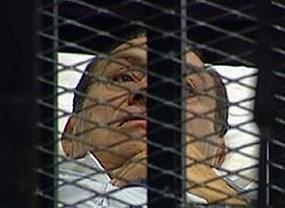The third phase of Egypt’s first free polls started on Tuesday as the trial of former Hosni Mubarak resumed.
 The third phase of Egypt’s first free polls started on Tuesday as the trial of former Hosni Mubarak resumed.
The third phase of Egypt’s first free polls started on Tuesday as the trial of former Hosni Mubarak resumed.
Egyptians have casted their ballots on Tuesday, in the third phase of poll, the first free elections after former President Hosni Mubarak was ousted last year following a popular uprising.
Small queues began to form around schools, turned into polling stations which opened at 8:00am (0600 GMT) on Tuesday.
The final round takes place over two days in the Nile Delta provinces of Qaliubiya, Gharbiya and Daqahliya; the New Valley province; the southern governorates of Minya and Qena; the border province of Matruh; and in North and South Sinai.
The run-up to this round of polls has been overshadowed by the deaths of 17 people last month in clashes between the ruling army and protesters demanding the military step aside immediately.
But the ruling generals have insisted the election process will not be derailed by violence.
Islamic groups, Muslim Brotherhood and the Salafi group Nour, have emerged in the lead of the first two stages.
Monitors praised the first two rounds as relatively free of irregularities.
But police raids on pro-democracy and rights groups last week have disrupted the work of leading Western-backed election monitors and drawn accusations that the army was deliberately trying to weaken oversight of the vote and silence critics.
The government said the raids were part of an investigation into illegal foreign funding of political parties and not aimed at weakening rights groups, which have been among the fiercest critics of the army's rule.
MUBARAK TRIAL Meanwhile, prosecutors begin presenting their case in the trial of Hosni Mubarak.
Meanwhile, prosecutors begin presenting their case in the trial of Hosni Mubarak.
"I expect a verdict before January 25, the anniversary of the revolution," said Khaled Abu Bakr, a lawyer involved in the trial.
He was referring to the beginning of the uprising that ended Mubarak's 30-year rule in February 2011.
Mubarak has been charged with complicity in the killing of more than 800 protesters during the uprising.
The 83-year-old ailing Mubarak was brought by helicopter to the Cairo courthouse from a hospital where he is held in custody. He was then taken into the defendants’ cage on a gurney, wearing dark sunglasses and covered by a green blanket.
Adel Saeed, an official spokesman for the general prosecutor's office, confirmed that there is "a possibility" of a verdict by January 25, depending on how long prosecutors and lawyers for the victims and the defense take to present their cases, plus the time the judge needs "to review all the documents and evidence presented."